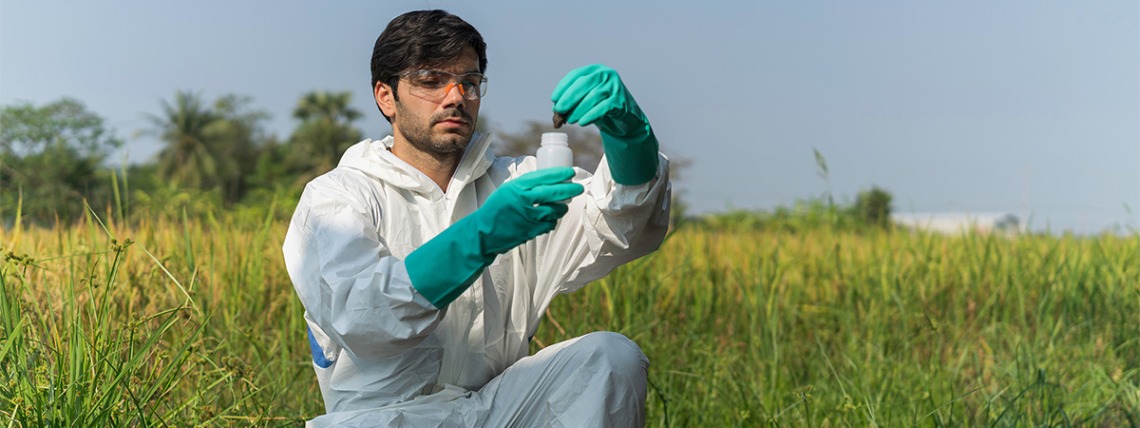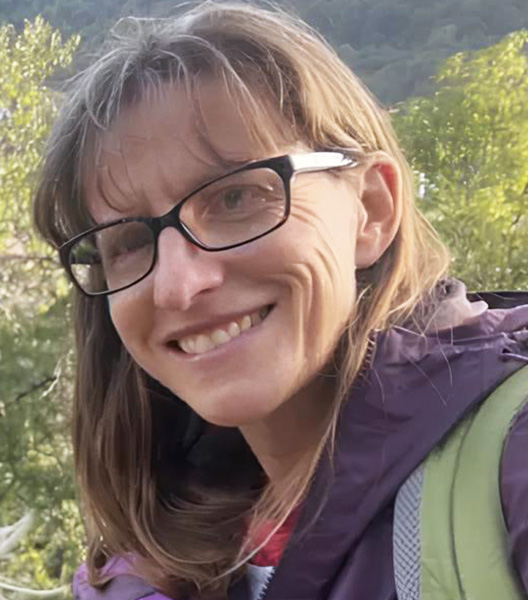Funding Connects Public Health Researchers with Geosciences Groundwater Study to Explore Impacts of Climate Change and Water Quality on Human Health

Supplemental funding from the National Science Foundation will connect public health researchers Dr. Heidi Brown and Dr. Marc Verhougstraete with an ongoing University of Arizona geosciences research study of groundwater chemistry to investigate the intersection of environment, water quality, and public health.

Heidi Brown, PhD, MPH
Researchers Heidi Brown, PhD, MPH, and Marc Verhougstraete, PhD, from the Zuckerman College of Public Health have been awarded $200,000 in supplemental funding from the U.S. National Science Foundation (NSF) to join an ongoing University of Arizona geosciences research study of deep groundwater quality called the "Subsurface Microbe-Rock-Fluid Systems" (SMRFS) project. Dr. Brown and Dr. Verhougstraete will work collaboratively with the existing research team to investigate the intersection of environment, water quality, and public health.

Marc Verhougstraete, PhD
“We know that geology impacts groundwater quality, and now we’re able to work with researchers who really understand the geology and groundwater chemistry so we can connect it to health outcomes,” said Dr. Brown, “this collaboration enables us to bring a public health perspective to understand the downstream impact on human health – specifically metal contaminants and cancer incidence.”
The SMRFS project was originally funded by a $2.8 million NSF grant three years ago. Led by UA College of Science researchers Jennifer McIntosh, PhD, from the Hydrology & Atmospheric Sciences Department, and Pete Reiners, PhD, from Geosciences Department, the SMRFS study has already been gathering data on subsurface water chemistry. The additional supplemental funding to connect public health researchers with the study is part of the NSF’s recent Climate Change and Human Health (C2H2) initiative, aimed at bridging the gap between geosciences and public health.
“Climate change impacts on human health are shifting our health landscape in so many ways,” said NSF program director Barbara Ransom, “This new collaborative work involving geoscientists, like Jennifer, who understand the external environmental triggers that cause health problems, and public health practitioners, like Heidi and Marc, is transforming our ability to address climate related health threats. Through the NSF Climate Change Impacts on Human Health initiative, people who understand the external triggers of serious health conditions are able to work hand-in-hand with public health experts. Together, they are coming up with new ways to reduce and mitigate these climate-driven health threats.”
The new supplemental funds will support the integration of geoscience research with public health outcomes to investigate the impacts of climate change on groundwater contamination and associated health risks. In addition to Dr. Brown and Dr. Verhougstraete from the College of Public Health, Joseph Hoover, PhD, from Environmental Sciences in the College of Agriculture, Life and Environmental Science, will join the project. Together, they will examine how climate-induced changes and increasing water demand increase the risk of exposure to groundwater contaminants, such as toxic elements like arsenic.
The research will center on the Colorado Plateau, a geographic area heavily dependent on groundwater and known for its distinctive pink, white, and red sandstone formations. These formations have created conditions where contaminants, especially arsenic, can leach into groundwater supplies, posing significant health risks. By combining geoscience with public health research, the project aims to identify environmental processes that may elevate cancer risks, particularly among underserved populations including rural communities, agricultural workers, and Indigenous peoples.
This initiative represents a significant step forward in understanding how climate change and groundwater contamination interact to affect public health, providing critical insights into diminishing these risks.

